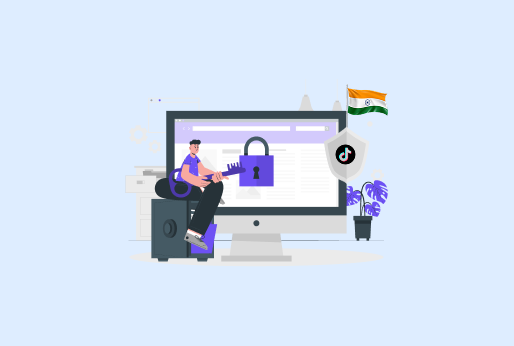
DNS Security: Definition And Best Practices
DNS helps you find the correct site you are looking for, and it makes your network work efficiently. If any hacker attacks the DNS, the websites can stop working, or you will see a fake website.
Protecting your DNS from cyber threats comes in the domain of DNS security, and is done by the DNSSEC tools, which check if the website address is authentic or not. Moreover, it also tracks unusual activities on the site and uses the secondary server to make sure that the system remains working and that the server does not go off.
Why Is DNS Security Important?
DNS lacks security measures; it doesn’t have any built-in security features. Numerous methods have surfaced to improve DNS security, such as:
Reputation Filtering
Malware, just like other users, uses the DNS request and gets the address of unsafe websites. However, many organizations, when they get an instinct that any virus can infect their systems, instantly block the DNS requests to keep their systems safe and secure.
DNS Inspection
Hackers use methods like the Domain Generation Algorithm, so the malware cannot be blocked easily. They also use DNS Tunneling to integrate their code; both of these methods help hackers steal your data. However, there are many online security tools made with AI that can detect any malware instantly.
Network Security
A protocol called DNSSEC integrates authentication with DNS answers. By guaranteeing unchangeable and unspoofable verified responses, DNS is unable to lead consumers to malicious websites.
DNSSEC is the system that checks whether the website you are accessing is a safe address or not. It uses digital signatures, so it won’t change the DNS queries and prevent it from sending you to unsafe sites.
Channel Security
The DNS request is visible to anyone who doesn’t have any hacking capability and can play around. To make it secure, use DoT and DoH; both are responsible for protecting your DNS requests.
The Best Methods For Configuring And Managing DNS
There is a very much importance of DNS security. Let’s first examine a wide variety of great practices before going more deeply into a select number. Sustaining a safe and dependable network architecture requires proper DNS setup and administration. Some simple ways to help organizations improve their DNS security:
1. Use DNSSEC to protect DNS
DNSSEC increases the security of the DNS server, which works by using digital keys, and checks if the DNS request is the right one or is forged by a hacker. The site owners add a security code to their website domain and so it can be safe from hackers who can have access to the domain.
2. Admin Access Security
Website owners of the businesses should be aware that only the Administration can access the DNS settings. To do so, these business owners can use MFA, i.e, Multi Factor Authentication, which is an additional way of providing security; in this, anyone accessing the DNS settings has to use the code for the verification received via email or on phone.
3. DNS Updates
Update the DNS server whenever any new updates are available; it can instantly resolve any issues if it’s there. These new updates can include the latest security updates that can help in increasing the security of the DNS server mad protect it from online attackers.
4. Keep DNS backup Servers
Ohne a server can be sometimes unreliable; if it stops working, then there’s no backup for it and the website will not work. It’s important to keep your website working by adding more than one DNS server. So, in case one stops working, the other can work effectively and handle the traffic of the website.
5. Monitor DNS Requests
To monitor your DNS requests, you can use other monitoring tools to detect if anything unusual is happening right away. It can include a lot of requests from unsafe websites that have, moreover it can detect hackers that are trying to access your DNS server.
6. Set Up a DNS Firewall
DNS Firewall is another way of protecting your DNS server from malicious traffic. On setting up the DNS firewall, all the requests will go to the DNS firewall first, and it will check if the request is safe, then only proceed with the request to the actual DNS server. If any cyber attacker tries to attack the DNS server, it will block the access quickly.
7. Blocks Harmful Links
Organizations can set their DNS server to block the malicious requests that can be dangerous to access in terms as they can infect the whole system with a virus. Businesses use the pre-created list of sites that are harmful, which makes the network safe.
8. Use a separate Space for DNS
Connect all the DNS servers separately; if one server gets attacked, another may stay safe from the hackers, and the virus or any other malware may not be transferred to other servers connected. It keeps your network secure from outside threats.
9. Enable DNS Requests
Watch all unusual activities if you are a network administrator; moreover, you can detect hackers before they can get into the computer system or your network to harm it.
In Summary
By these security methods, you can identify the hackers and enhance the security servers. If you are just starting to establish a company or you own a company, then it’s important for you to take the best security measures for your DNS servers. Use DNSSEC, which will check and confirm if the DNS request is safe or not. And protect you from reaching for it.
Start Browsing Privately!
iProVPN encrypts your data for protection against hackers and surveillance. Unblock your favorite streaming platforms instantly with the best VPN for streaming.





